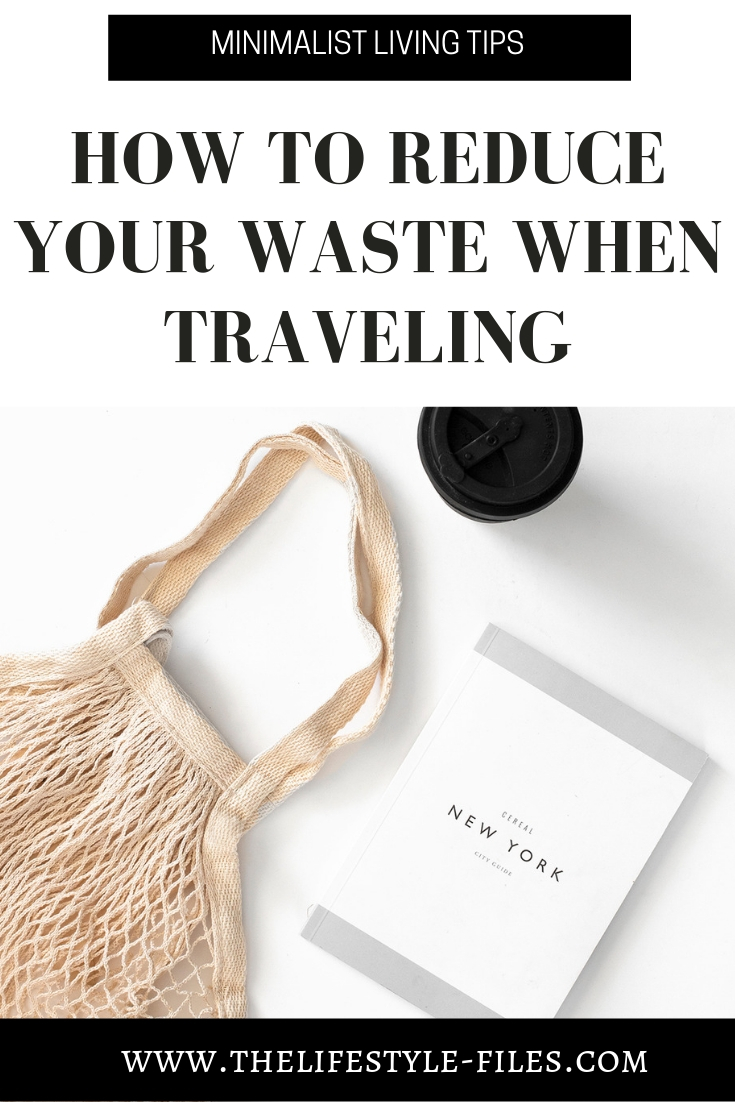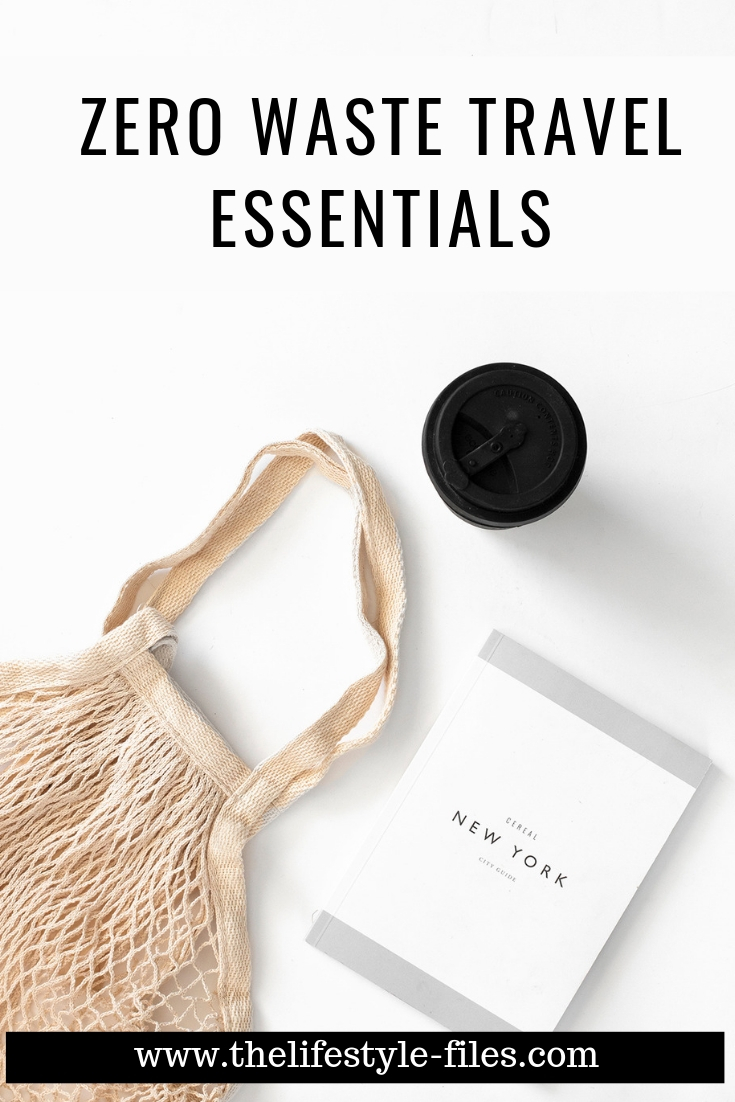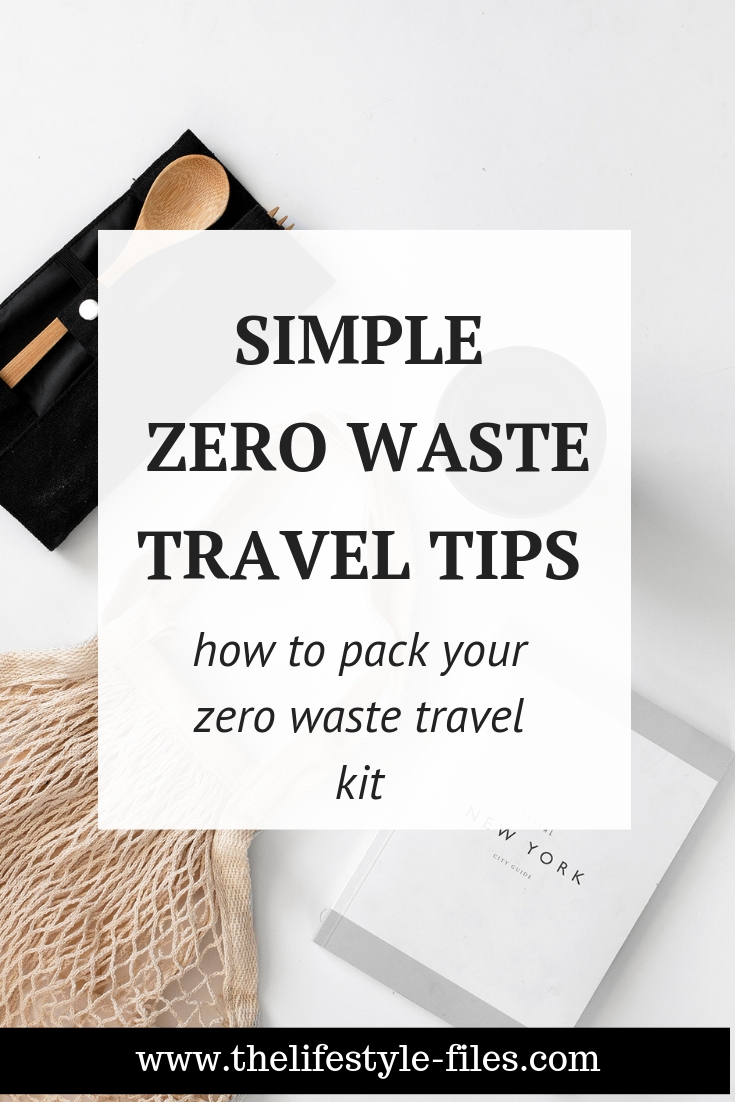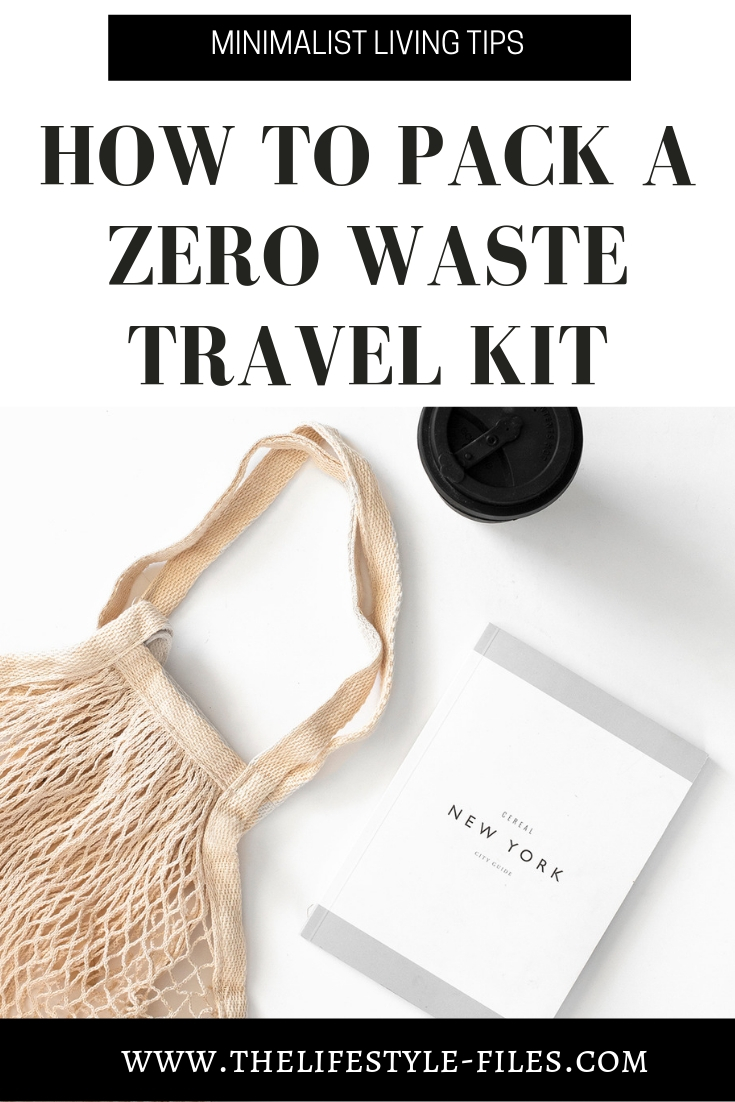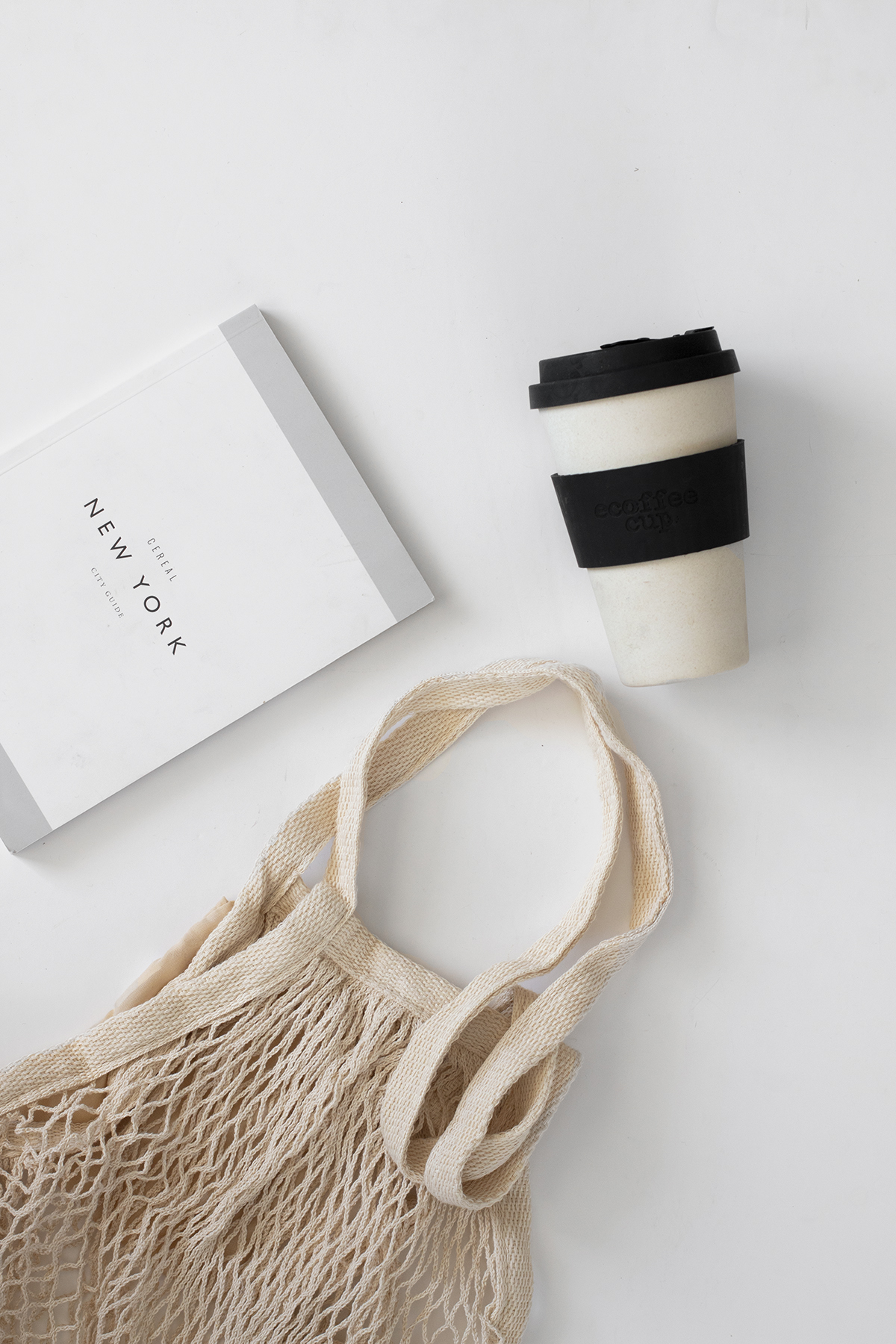
Warm weather is finally here, which means we’re heading towards peak traveling season.
As I have a couple of trips planned (both weekend and long-distance trips), I thought it would be a good time to take a look at my traveling habits and how I could make them more sustainable.
There are many aspects of responsible, ethical, green traveling from protecting the wildlife (stop participating in cruel animal activities like elephant riding) through supporting the local people and economy (buy and consume local products) to choosing green hotels and tour companies. This time, though, I’d like to focus on a simpler thing – reducing our waste when we travel.
You’d think that not leaving trash in a foreign place is a pretty low bar to clear, but if you think about it, most of us will probably fail at it.
Zero waste-ish
Talking about zero waste travel is a bit misleading though. Zero waste living is a great concept and an admirable goal, but also, quite impossible to achieve for most of us. But that doesn’t mean we shouldn’t aspire to it. Don’t take zero waste at its literal meaning – take it as a slogan for reducing your waste as much as you can. The fact that we cannot totally eliminate our ecological footprint and thus realize the perfect zero waste and sustainable lifestyle is not an excuse not to improve and make better choices. Remember: small changes do matter and you’re not too small to make a difference.
What are your travel habits?
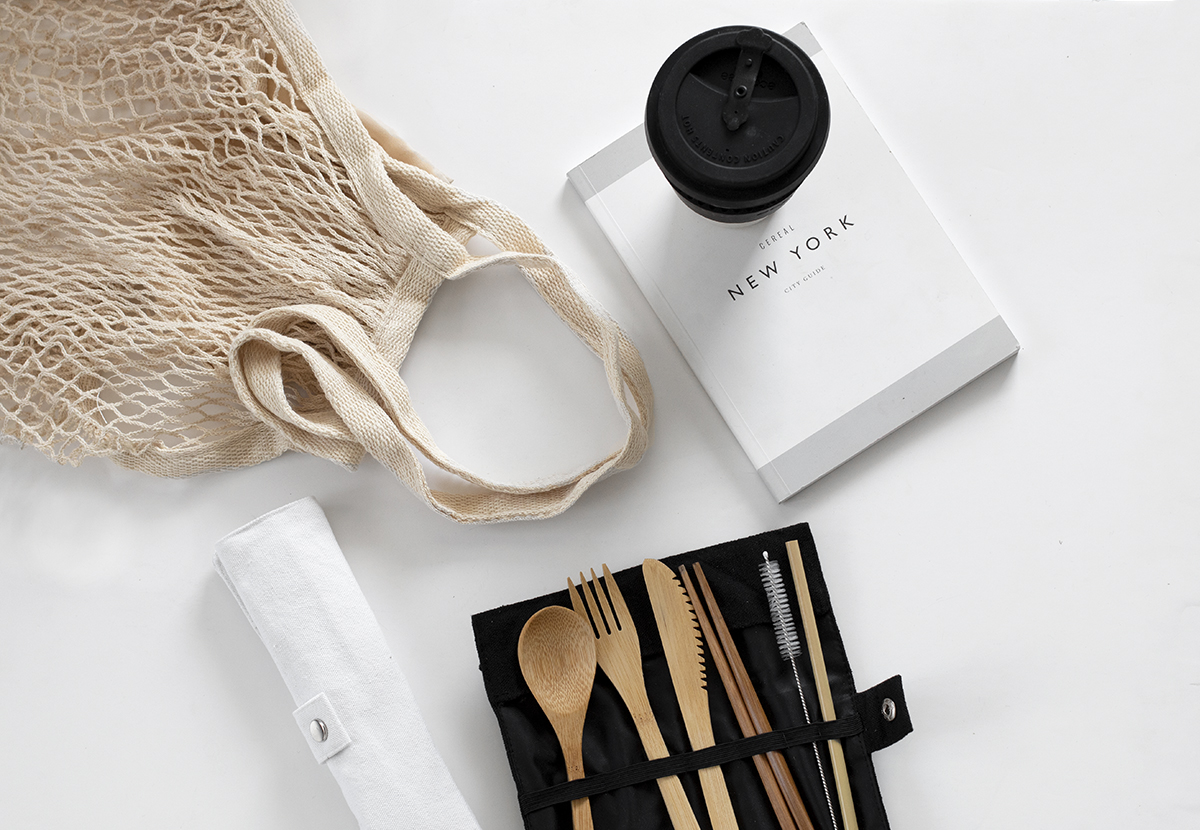
If you’re interested in zero waste travel, you’ll find a lot of resources on the Internet with plenty of recommendations and zero waste travel kit ideas (you’ll find my personal travel kit below). I think these are very useful, but you gotta make them personal and come up with your own way that totally fits your traveling style. So, the first step should be to look at your own traveling habits.
If you love camping or renting a holiday home and tend to cook on your holiday, you should probably prepare for that. However, if you prefer staying in hotels and eating out, it’s totally unnecessary to try to fit your whole kitchen into your luggage.
When I started to think about how I could reduce my waste during traveling, I sat down and thought about how I usually travel, what the critical trash points are, and what I could do about them. It was a simple exercise but ensured that I could come up with practical and realistic personal green travel goals.
My personal travel habits and critical trash points
Preparation
Not a significantly waste heavy activity, but nevertheless, there are some things to pay attention to.
Critical trash point: Printing travel documents – totally unnecessary in 2019.
The zero waste solution: Use a mobile boarding pass, download reservations. (It baffles me how many people still use printed documents).
Transport
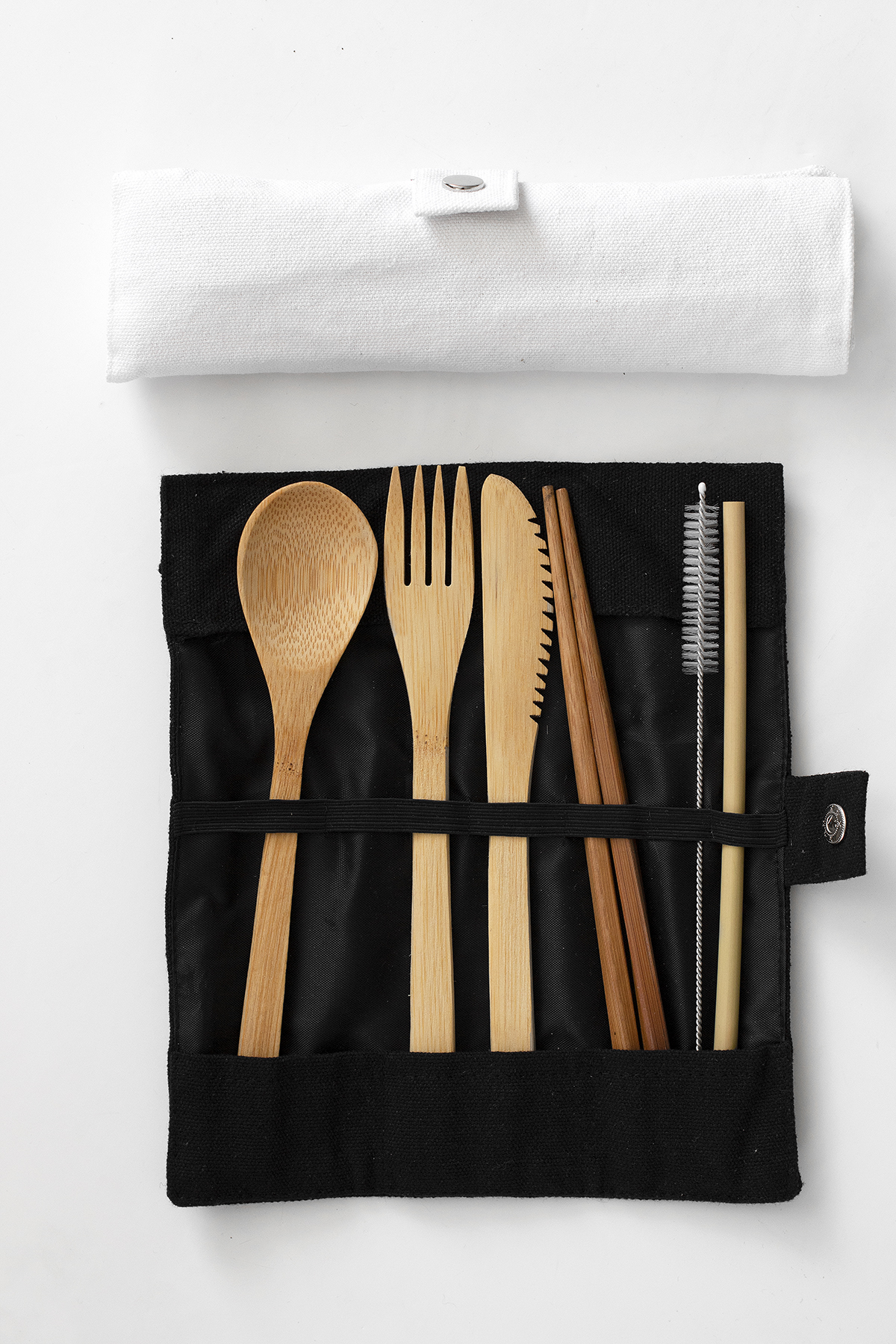
Bamboo cutlery travel set from here
I usually travel by plane, sometimes by car. Most of my flights are short-term, but this year I do have 1 or 2 long-distance flights and they definitely require extra preparations as they involve a lot of unnecessary plastic.
Critical trash point #1: Airport and plane food and beverages– usually come prepackaged with plastic cups and utensils.
The zero waste solution: Bring your own food, a water bottle and a travel set of reusable bamboo utensils. Last year was the first time I actually brought food with me on the plane when I traveled to New York, and honestly, I don’t know what took me so long. It’s healthier, tastes much better, and saves a lot of unnecessary plastic. I pack a salad, an apple, almonds, a homemade granola bar or some cookies. I also have my water bottle with me that I refill at the airport. This year, I’m taking the next steps – I already bought bamboo utensils in preparation for my flights.
Critical trash point #2: The single-use in-flight accessories, like earphones, pillows, blankets, socks – all wrapped in plastic.
The zero waste solution: Bring your own stuff and decline in-flight products. Flight socks are long-distance flight essentials; it’s worth getting a quality pair. Earphones take up no space at all in my bag and I use a big scarf as a blanket/pillow.
Hotel
We usually stay either in hotels or Airbnbs. Especially in the latter we really need to be mindful about how we trash things.
Critical trash point: Reusing and recycling (+ toiletries, see next point)
The zero waste solution: Not a waste issue per se, but we should be mindful about how we use hotel amenities. Yes – do reuse the towels, there’s usually no need to change them every single day. Most hotels do have recycling bins somewhere in the building if you need to dispose of something, but if not, I guarantee there will be one on the streets nearby.
Toiletries
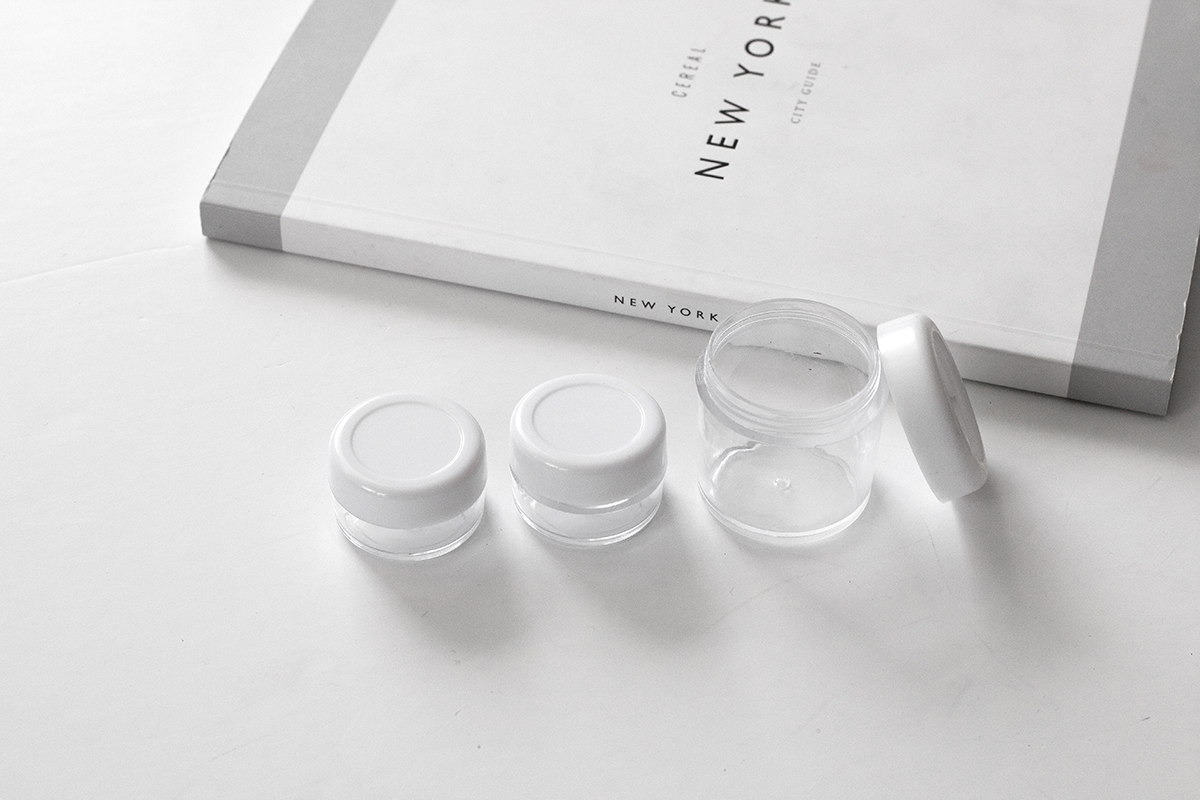
It’s hard to believe, considering my everyday skincare obsession, but I travel with very minimal skincare and makeup products. And I suggest the same to everyone. I used to bring a lot of stuff on trips, until I realized I never, ever use 90% of them. Now I travel with just a couple of essentials. Most of the time, I decant products into travel containers or just bring samples that I got with skincare orders (I save them up for travels). However, I used to rely on hotel soaps/shower gels just to save space in my luggage, but from now, I definitely won’t.
Critical trash point: Single-use hotel toiletries
The zero waste solution: Minimize your travel kit. Try solid products – e.g. bar soap, cleansing bars, shampoo bars (advantage: they won’t leak onto your clothes). Decant your products into travel containers – I use Muji ones. Bring a muslin cloth and reusable makeup remover pads.
Dislaimer: I still buy those small hand sanitizer plastic bottles before each trip. I use them constantly when I travel and so far haven’t found an eco-friendly alternative (any ideas?). That’s what I meant by not obsessing over being perfect.
Eating + drinking
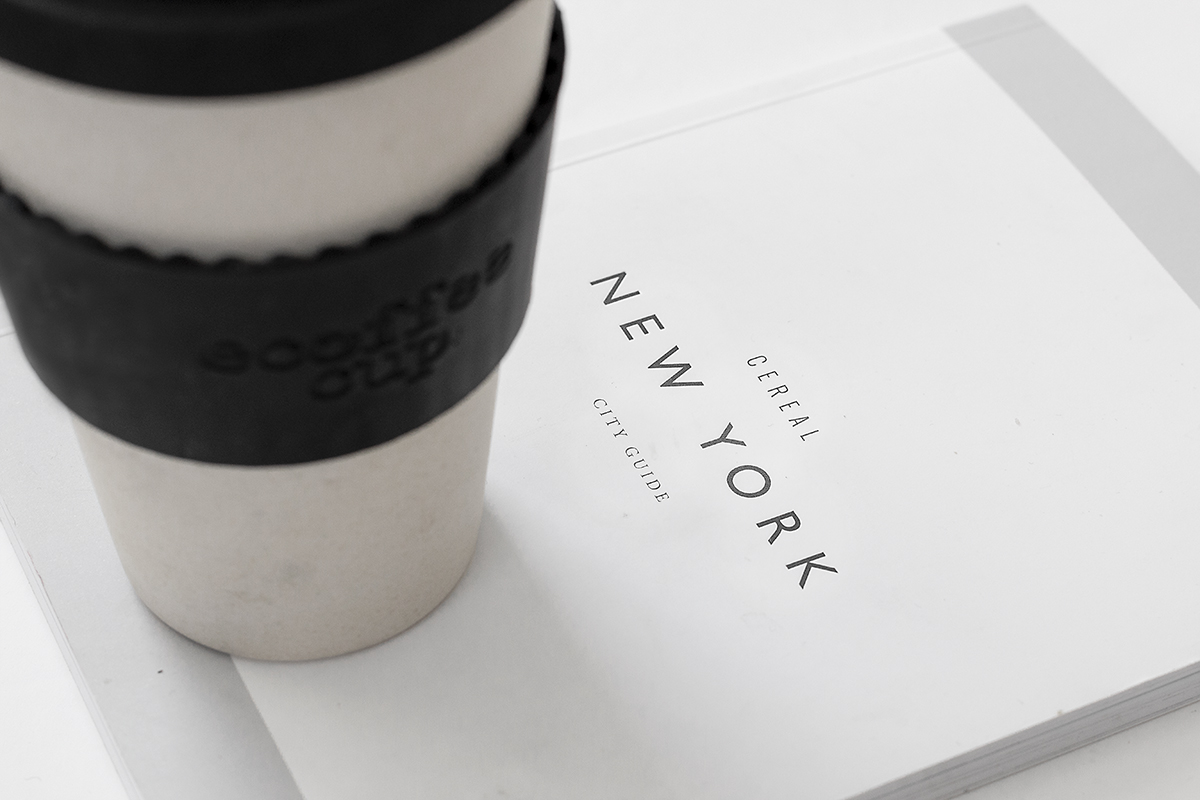
For me, eating out is an important part of the travel experience. We don’t cook, so I don’t have to prepare for that. We don’t eat in fast food restaurants either, so single-use utensil is not an issue when I travel (if you do, I recommend bringing reusable bamboo cutlery, it’s lightweight, simple, and sustainable). Some people include reusable coffee mugs in their zero waste travel kits, but once again, it’s a personal habit issue – we don’t really drink takeaway coffee abroad, but prefer sitting down in cafés.
Critical trash points: Plastic waste, coffee cups.
The zero waste solution: Reusable utensils, coffee mug, water bottle, and cloth napkins – what you should pack really depends on your traveling habits. With food and water, in particular, my advice is to aim for the best, but don’t despair if you really need to buy a bottle of water.
Shopping
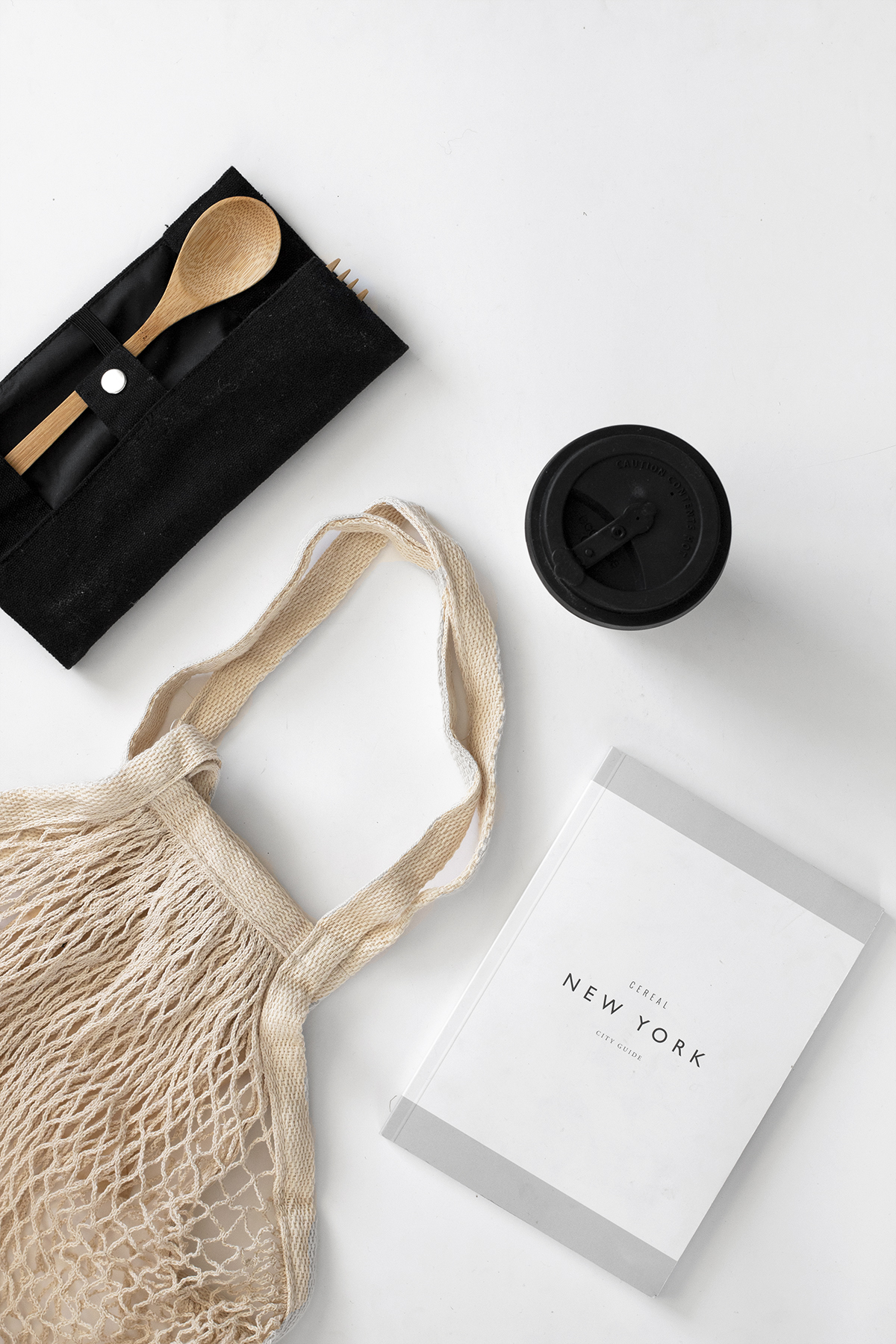
Not gonna lie, my travel habits definitely include shopping. Mostly food items, design objects, and clothes, so I have to prepare for that.
Critical trash point: Plastic bags.
The zero waste solution: If you know your trip will involve some kind of food shopping, pack a reusable bag. Some of them take up no space at all (like this). If you buy items that won’t fit into a reusable bag – like clothes or shoes, recycle the (usually) paper bag responsibly.
What are your traveling habits and zero waste travel ideas?

